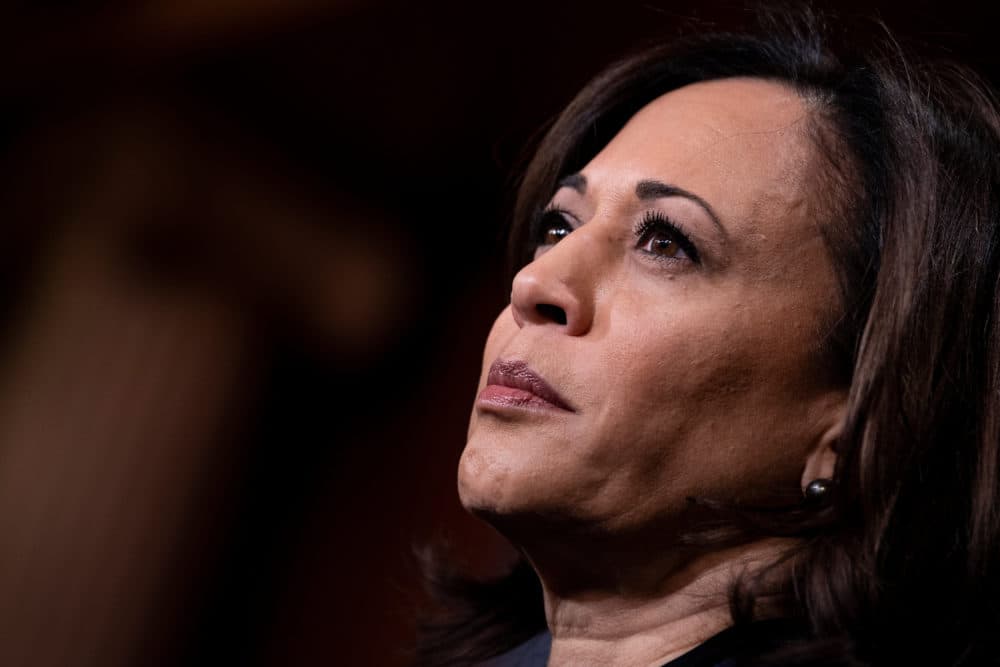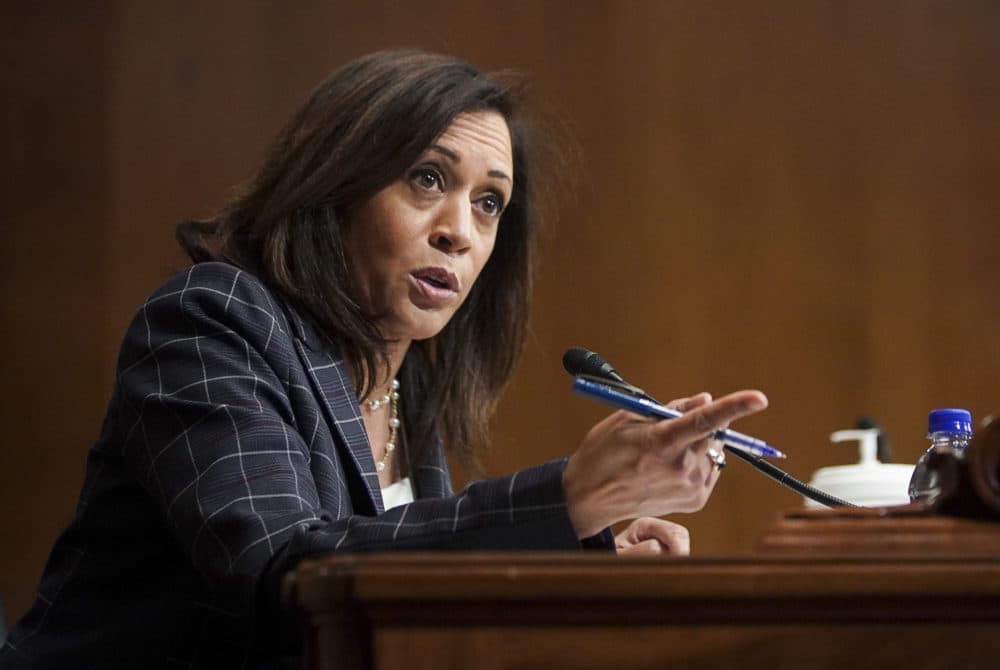Advertisement
Commentary
With Kamala Harris, Biden Makes History — And Starts Repaying A Debt

He didn’t just pick a woman.
He didn’t just choose a Black woman.
Joe Biden selected as his running mate a fierce former rival for the Democratic presidential nomination who has demonstrated that she is unafraid to call things as she sees them, whether she was challenging Biden’s own opposition in the 1970s to court-ordered busing to achieve desegregation or President Donald Trump’s questionable choice of Brett Kavanaugh as an associate justice of the United States Supreme Court.
Kamala Harris, the senator from California and now the presumptive Democratic nominee for vice president of the United States, was right on both counts.
The daughter of immigrant academics — one from India, the other from Jamaica — Harris’s personal story is no less compelling than Biden’s roots in scrappy working-class Scranton, Pennsylvania. At this moment of national reckoning, against a Republican opponent who thrives on stoking racial division, her biography is actually the more resonant. A graduate of Howard, the historically Black university in Washington, D.C., Harris is only the second Black woman ever elected to the United States Senate.

She spent the previous 13 years as a prosecutor, first as district attorney in San Francisco and later as attorney general of California, where she worked on the national stage alongside Biden’s son Beau, then Delaware’s attorney general, who died of cancer at 46 in 2015. No doubt that personal connection with Beau helped draw the famously emotional former vice president to Harris, but this was a pragmatic, not a personal, political choice at a moment when the nation is roiled by racial unrest in the wake of unprovoked killings of unarmed black men by police. Harris has been a prosecutor and a civil rights activist and a sponsor of legislation that would, at last, make lynching a federal crime.
Her criminal justice background has not endeared Harris to the left wing of the Democratic party, gifted as they are with selective memory and 20/20 hindsight. They would hold Harris complicit in those killings by police because she did not endorse a bill that would have required the attorney general’s office to investigate all police shootings in the state of California.
Advertisement
These are the same critics who would blame Biden for the scourge of mass incarceration, an unanticipated consequence of a popular, bipartisan omnibus crime bill in 1994 that also included an assault weapons ban and protections for women against domestic violence.
That Harris is more pragmatist than flame-thrower well serves a campaign that needs to explain to a restive electorate how Biden will rebuild all that the Trump administration has destroyed, from a public health infrastructure collapsing in the face of a global pandemic to the diminished standing of the United States on the world stage. A Biden-Harris team knows how the levers of Washington work and will engage them in the restoration of a democracy brought to the brink of collapse by the feckless leadership of a corrupt would-be autocrat.
More than 20 years Biden’s junior, Harris is a tenacious, blunt-talking political campaigner, an asset for Biden who would be 78 years old on Inauguration Day and whose rhetorical style might best be described as rambling. Biden needs to harness her passion if he hopes to turnout millions of young people who lost their hearts and their hopes to the failed campaign of Sen. Bernie Sanders.
On news of her selection, Trump employed the fearmongering that has fueled his unhinged political career. “She’s in favor of socialized medicine. You are going to lose your doctors. You are going to lose your plans,” he charged, mischaracterizing Harris’s support for the expansion of the Affordable Care Act. Even more predictably, the president transferred to Harris the insults he frequently flung at former Secretary of State Hillary Clinton, his 2016 Democratic rival. Harris, he told reporters in the White House briefing room, is “nasty” and “horrible” and “a phony,” and “just about the most liberal person in the U.S. Senate.”
Nonsense. Kamala Harris isn’t Bernie Sanders. She isn’t even Sen. Elizabeth Warren. If, as Trump charged, her selection by Biden means that the Democratic nominee has embraced “the radical left” what does it say about Trump that, as a private citizen, he contributed thousands of dollars to Harris’s campaigns for attorney general in California?
No, it’s back to the drawing board for Trump’s campaign strategists. Sleepy Joe didn’t stick. “Radical left,” won’t either. What Biden turns out to be with this selection is a presidential candidate ready to acknowledge that the debt this country owes is not just to the rich white men who launched the American experiment. For women of color who helped build this country, who have been the Democratic Party’s most loyal supporters, it is an acknowledgment that has been a long time coming.
